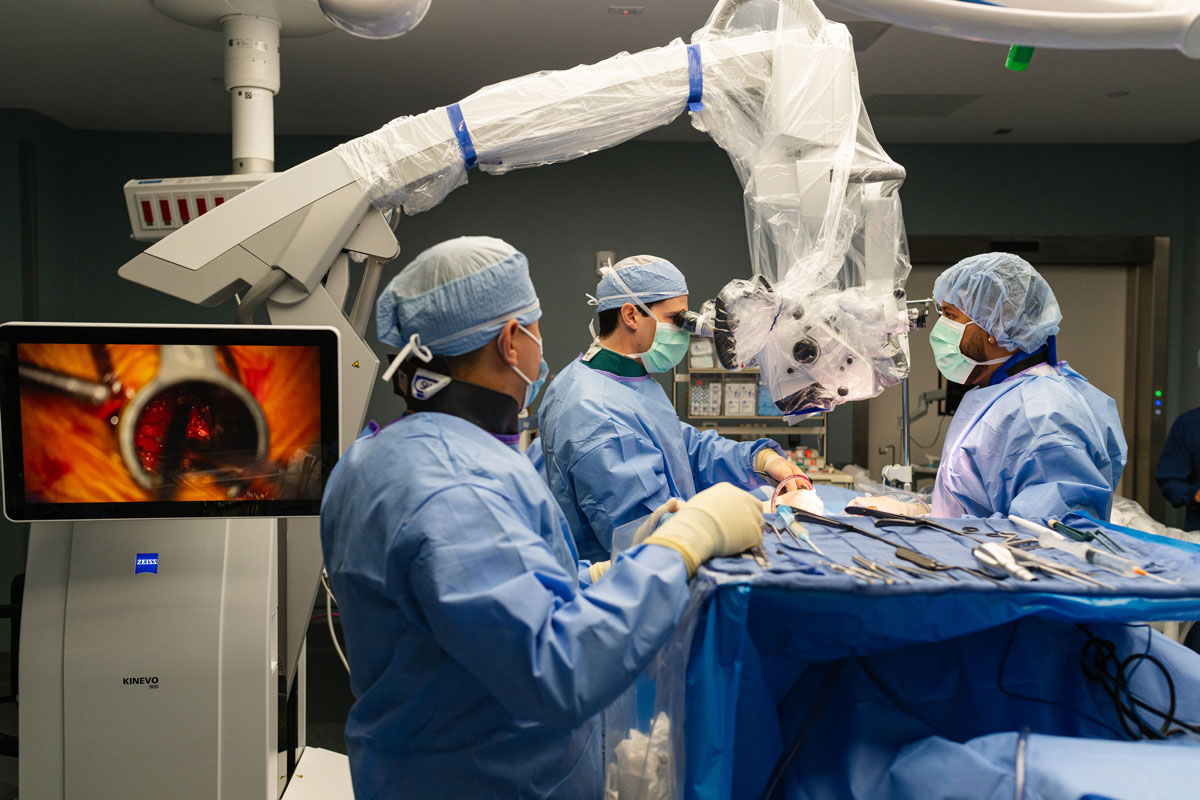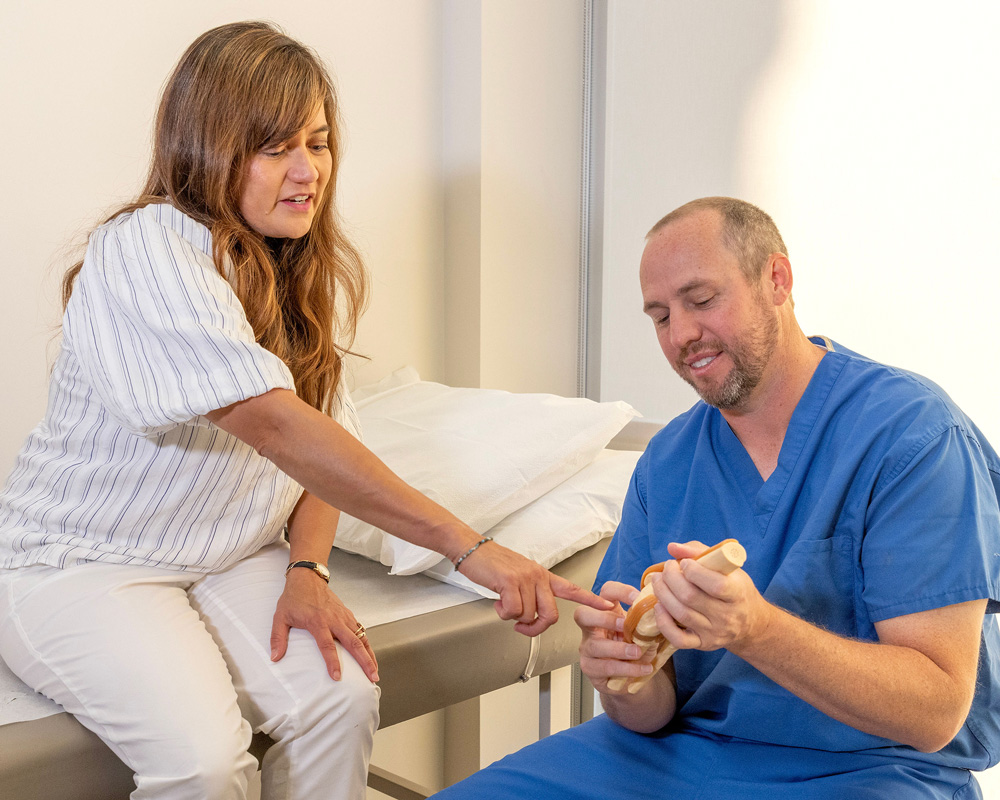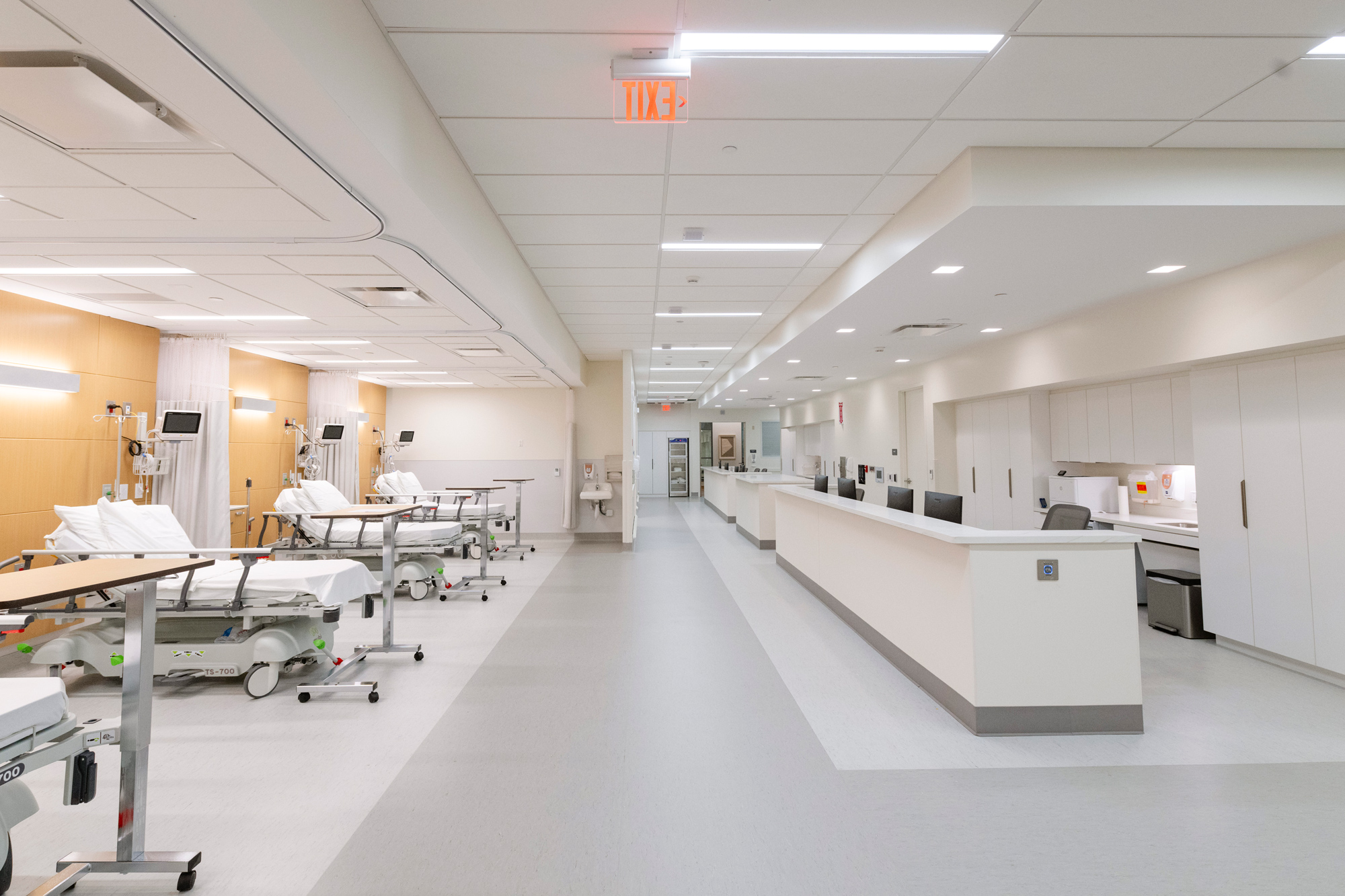The Benefits of Minimally Invasive Spine Surgery
Minimally invasive spine surgery is designed to deliver effective relief with a gentler approach, making it possible for patients to experience meaningful recovery without the lengthy downtime typical of traditional spine surgery:
- Smaller Incisions & Minimal Scarring: MISS involves incisions that are generally less than an inch long, leading to smaller scars and less tissue disruption.
- Lower Complication Rates: With minimal impact on surrounding muscles and tissues, there’s a reduced risk of infection, blood loss, and other complications.
- Quicker Recovery: Patients often return home the same day or after a brief stay, with total recovery measured in weeks, not months.
- Reduced Pain & Minimal Pain Medication Dependency: Smaller incisions result in less pain post-surgery, helping to reduce the need for pain medication, including opioids.
- Enhanced Precision Through Advanced Technology: Tools such as intraoperative imaging, fluoroscopy, and robotic assistance offer surgeons greater control and accuracy, leading to better outcomes.
Understanding Minimally Invasive Spine Care
Minimally invasive spine care is a cutting-edge approach that goes beyond the basics of smaller incisions. Using technologies like endoscopic cameras, X-ray guidance, and robotic systems, DISC’s surgeons can access the spine with unmatched precision. This allows for targeted treatment that minimizes disruption to surrounding tissues, muscles, and ligaments, leading to shorter recovery times and improved results for patients.
Key Benefits of Minimally Invasive Spine Care
Compared to traditional surgery, minimally invasive spine care offers numerous advantages that help patients return to their normal routines faster and with less discomfort:
- Minimal Scarring: Traditional open surgery involves larger incisions, while MISS typically uses incisions less than an inch long.
- Lower Complication Risk: MISS results in less tissue disruption, reducing infection rates, blood loss, and other complications.
- Speedy Recovery: Most patients can go home the same day or after a short hospital stay, with total recovery times shortened significantly.
- Less Postoperative Pain: Smaller incisions mean less pain, decreasing reliance on pain medication.
- Greater Precision with Technology: Advanced imaging and robotics allow surgeons a clear view and precise control, improving patient outcomes.
Common Minimally Invasive Spine Procedures
Advancements in technology have made minimally invasive spine care accessible for various conditions. DISC’s specialists perform several of the most common minimally invasive procedures:
- Microdiscectomy: Used to treat herniated discs pressing on spinal nerves, this procedure involves a small incision and microscopic assistance to remove the damaged disc portion, often allowing for outpatient recovery.
- Minimally Invasive Spinal Fusion: In cases of instability or scoliosis, this procedure joins two or more vertebrae to stabilize the spine. Smaller incisions and precise placement of rods and screws result in quicker recovery than traditional fusion.
- Laminectomy & Laminotomy: Relieves pressure on the spinal cord and nerves by removing part of the lamina. Endoscopic tools allow for less tissue damage compared to open surgery.
- Kyphoplasty & Vertebroplasty: Used for vertebral compression fractures, these procedures involve small incisions to inject bone cement, stabilizing the fracture and relieving pain.
- Endoscopic Spine Surgery: Performed through a tiny tube with a camera, endoscopic surgery effectively treats bulging discs, nerve compression, and spinal stenosis with high precision.
Why Choose Minimally Invasive Spine Care?
Minimally invasive spine care has transformed the field of spine surgery, offering a safer, more efficient alternative to open surgery. Patients benefit from:
- Reduced Recovery Times
- Lower Complication Risks
- Less Pain & Minimal Scarring
- Advanced Precision through Technology
With a commitment to smaller incisions and faster recoveries, minimally invasive spine care at DISC empowers patients to regain their mobility and improve their quality of life. Thanks to ongoing advancements in medical technology, patients are increasingly able to benefit from these innovative treatments, allowing for a faster return to the activities they love.
Discover Your Options at DISC
If you’re dealing with chronic back pain or a spine disorder, minimally invasive treatments could be the path to a healthier, faster recovery. Consider scheduling a consultation with one of DISC’s spine specialists to explore whether minimally invasive spine care is the right choice for you.



